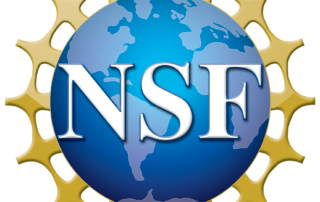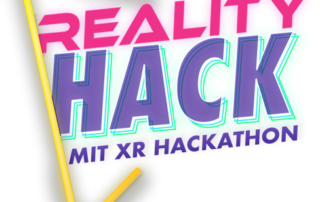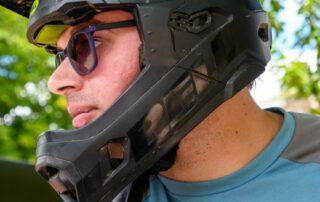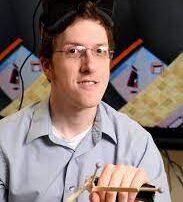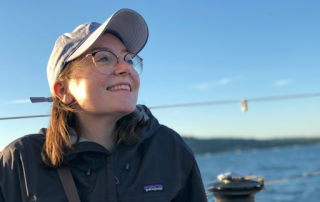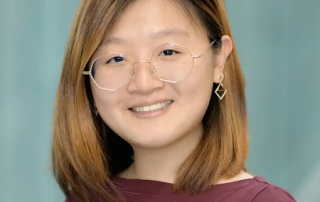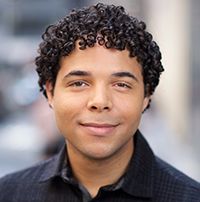Events
Accessible XR Summer Research Program | Final Presentations
August 5, 2022
Each summer, Cornell Tech and Columbia University welcome undergraduates from across the country to their campuses for a NSF-funded Research Experiences for Undergraduates program in accessible XR.
This year, eight students spent the summer learning research methods, building prototypes, and testing new ideas for projects that make XR more accessible to people with disabilities.
You’re invited to view final presentations from the REU project groups on Friday, August 5th at 1pm ET. Students will provide background on their projects and demonstrate the technologies they’ve created. Please join us in congratulating our hard-working students on their successes during this program!
Register for the presentations here >Continue Reading Accessible XR Summer Research Program | Final Presentations
Inclusive User Testing in VR @ MIT Reality Hack
August 9, 2022
Completed as part of the MIT 2022 Reality Hack, “Inclusive User Testing in VR” is an accessible in-game tool that allows general audiences to give feedback on VR projects. Users can use a variety of input methods, including voice-to-text and VR keyboards, and also includes screen reader support for low-vision individuals. This functionality allows researchers, developers, and designers to receive immediate, asynchronous feedback on their VR projects via a web-based dashboard. In this talk, we will cover not only the value that this tool brings to a diverse number of XR creators, but how this hackathon project went from an initial concept to a usable tool over the course of many development iterations and direct involvement from the accessibility community. Register for the talk here.Continue Reading Inclusive User Testing in VR @ MIT Reality Hack
Inclusion and Accessibility in XR: Exploring Experiences | Reginé Gilbert
July 19, 2022
This talk will review what inclusion and accessibility mean for extended reality and the metaverse. By examining existing heuristics and researching existing methods for accessibility, the discovery has been made that new principles need to be adopted to create more equitable experiences. We will discuss ongoing research on accessible augmented reality. Register for the talk here.Continue Reading Inclusion and Accessibility in XR: Exploring Experiences | Reginé Gilbert
Exploring Barriers in XR | Jamie Knight + Lion
May 25, 2022
XR and the metaverse introduces a whole new realm for users to explore; It brings new barriers and opportunities.
The BBC has just published the XR barrier research project to identify some of the most common barriers. In this talk Jamie & Lion share their experiences leading the project and share insights in building XR experiences for audiences anew.
Continue Reading Exploring Barriers in XR | Jamie Knight + Lion
Making Virtual Reality More Accessible for Persons with Balance Impairments | Dr. John Quarles
June 21, 2022
Although consumer level virtual reality (VR) head mounted displays (HMDs) (e.g., HTC Vive) are becoming more prevalent today, these VR developers typically do not consider persons with disabilities, such as persons with balance impairments (e.g., persons with multiple sclerosis, Parkinson’s, or stroke). Thus, many immersive VR applications, such as education, physical fitness, rehabilitation, and entertainment, are not accessible to users with balance impairments. Continue Reading Making Virtual Reality More Accessible for Persons with Balance Impairments | Dr. John Quarles
Multimedia for Deaf Viewers | Dr. Raja Kushalnagar
Tuesday, May 17, 2022
Deaf and hard of hearing (DHH) people have relied on assistive and accessible technologies/services to consume or produce aural information. Some hard-of-hearing people rely on an assistive technology approach to enhance aural information for easier perception and understanding. Other hard of hearing and most deaf people rely on an accessible technology approach to transform the aural information into visual or tactile information for easier perception and understanding.Continue Reading Multimedia for Deaf Viewers | Dr. Raja Kushalnagar
2022 XR Access Symposium
Save the Date for the 2022 XR Access Symposium, June 9-10, 2022.
XR Access Quarterly Showcase | Spring 2022
March 24, 2022
Are you curious about how XR Access is working toward creating immersive technologies that are usable and accessible to all? Want to learn more about XR Access’s leaders and goals?
Jump in to XR Access’s Spring Quarterly Showcase to hear how we’re working toward XR accessibility, and get a preview of what we’re looking forward to in the next quarter.
XR Access @ MIT Reality Hack | XR Accessibility Workshop
March 23, 2022
Hackathons are a fantastic opportunity to explore new technologies. Immersive technologies like virtual, augmented, and mixed reality (collectively eXtended Reality or XR) are no exception; the ability to immerse a user in a new environment or bring data right to a user’s eyes and fingertips have excited imaginations for years.
This workshop presented at the 2022 MIT Reality Hacks event shows you how to incorporate accessibility into a hackathon prototype.
Continue Reading XR Access @ MIT Reality Hack | XR Accessibility Workshop
Does VR Have an Accessibility Problem? | Dr. Mar Gonzalez-Franco
February 2, 2022
In this talk we explore the special challenges of VR with regards to accessibility. In VR and more in general spatial computing, users find themselves entering the digital content through wearables, and interacting with content with their own body. This means that if they have any bodily limitation this limitation will carry on to VR. In some cases it might even mean they won’t be able to wear the headset. In this talk we also present some work done to deal with this challenge.Continue Reading Does VR Have an Accessibility Problem? | Dr. Mar Gonzalez-Franco
Making Mobile Augmented Reality Applications Accessible | Jaylin Herskovitz
December 8, 2021
Augmented reality (AR) technology creates new immersive experiences in entertainment, games, education, retail, and social media. AR content is often primarily visual and it is challenging to enable access to it non-visually due to the mix of virtual and real-world content. In this work, Jaylin and her coauthors identify common constituent tasks in AR by analyzing existing mobile AR applications for iOS, and characterize the design space of tasks that require accessible alternatives. Continue Reading Making Mobile Augmented Reality Applications Accessible | Jaylin Herskovitz
Designing Technologies to Make Virtual Reality Accessible for People with Visual Impairments | Dr. Yuhang Zhao
November 19, 2021
Today, VR mainly relies on realistic visual feedback to provide an immersive experience that is only accessible to sighted people. Most VR applications are not accessible for people with visual impairments (including people who are blind and people with low vision), preventing them from benefiting from this important class of emerging technology. In this talk, I’ll describe my research collaborations with Microsoft, which focused on designing technologies to make VR accessible for people with visual impairments, as well as discussing design guidelines for accessible VR. Continue Reading Designing Technologies to Make Virtual Reality Accessible for People with Visual Impairments | Dr. Yuhang Zhao
XR Access Research Seminar | Dr. Brian Smith
September 29, 2021
We often think of AI as giving computers new abilities, but there is tremendous potential for AI to give people new abilities as well. In this talk, entitled “AI and New Abilities: Video Games for Blind Players”, Brian shows how AI can be used to power assistive technologies — specifically, how to make it possible for people who are blind to play video games, including evaluating and navigating virtual worlds.
Continue Reading XR Access Research Seminar | Dr. Brian Smith
